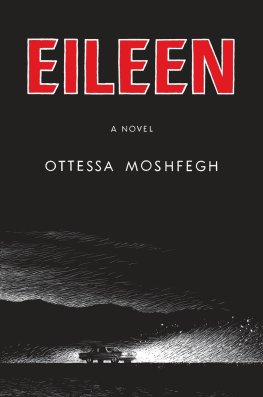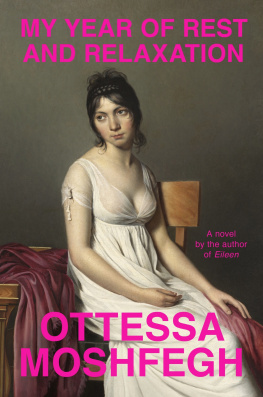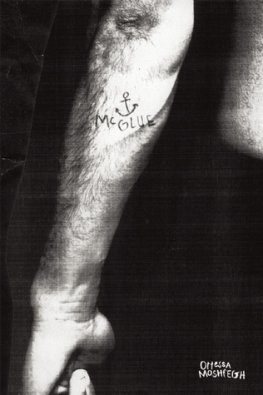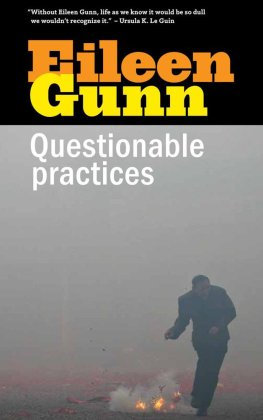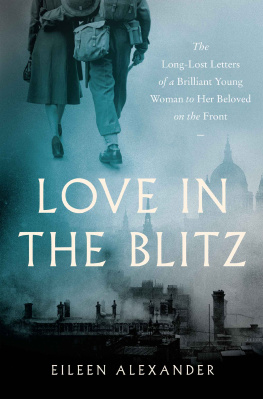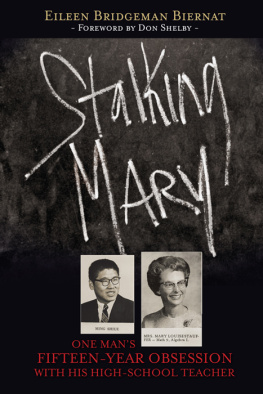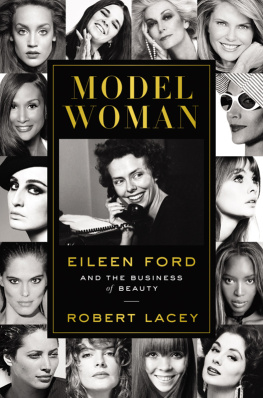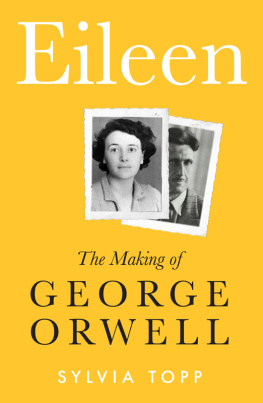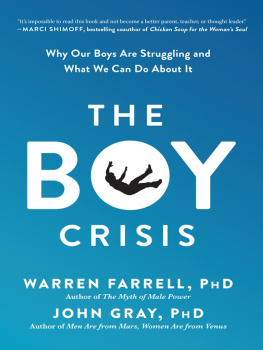I looked like a girl youd expect to see on a city bus, reading some clothbound book from the library about plants or geography, perhaps wearing a net over my light brown hair. You might take me for a nursing student or a typist, note the nervous hands, a foot tapping, bitten lip. I looked like nothing special. Its easy for me to imagine this girl, a strange, young and mousy version of me, carrying an anonymous leather purse or eating from a small package of peanuts, rolling each one between her gloved fingers, sucking in her cheeks, staring anxiously out the window. The sunlight in the morning illuminated the thin down on my face, which I tried to cover with pressed powder, a shade too pink for my wan complexion. I was thin, my figure was jagged, my movements pointy and hesitant, my posture stiff. The terrain of my face was heavy with soft, rumbling acne scars blurring whatever delight or madness lay beneath that cold and deadly New England exterior. If Id worn glasses I could have passed for smart, but I was too impatient to be truly smart. Youd have expected me to enjoy the stillness of closed rooms, take comfort in dull silence, my gaze moving slowly across paper, walls, heavy curtains, thoughts never shifting from what my eyes identified book, desk, tree, person. But I deplored silence. I deplored stillness. I hated almost everything. I was very unhappy and angry all the time. I tried to control myself, and that only made me more awkward, unhappier, and angrier. I was like Joan of Arc, or Hamlet, but born into the wrong life the life of a nobody, a waif, invisible. Theres no better way to say it: I was not myself back then. I was someone else. I was Eileen.
And back then this was fifty years ago I was a prude. Just look at me. I wore heavy wool skirts that fell past my knees, thick stockings. I always buttoned my jackets and blouses as high as they could go. I wasnt a girl who turned heads. But there was nothing really so wrong or terrible about my appearance. I was young and fine, average, I guess. But at the time I thought I was the worst ugly, disgusting, unfit for the world. In such a state it seemed ridiculous to call attention to myself. I rarely wore jewelry, never perfume, and I didnt paint my nails. For a while I did wear a ring with a little ruby in it. It had belonged to my mother.
My last days as that angry little Eileen took place in late December, in the brutal cold town where I was born and raised. The snow had fallen for the winter, a good three or four feet of it. It sat staunchly in every front yard, rolled out at the lip of every first-floor windowsill like a flood. During the day, the top layer of snow melted and the slush in the gutters loosened a bit and you remembered that life was joyful from time to time, that the sun did shine. But by afternoon, the sun had disappeared and everything froze all over again, building a glaze on the snow so thick at night it could hold the weight of a full-grown man. Each morning, I threw salt from the bucket by the front door down the narrow path from the porch to the street. Icicles hung from the rafter over the front door, and I stood there imagining them cracking and darting through my breasts, slicing through the thick gristle of my shoulder like bullets or cleaving my brain into pieces. The sidewalk had been shoveled by the next-door neighbors, a family my father distrusted because they were Lutheran and he was Catholic. But he distrusted everyone. He was fearful and crazy the way old drunks get. Those Lutheran neighbors had left a white wicker basket of cellophane-wrapped waxed apples, a box of chocolates, and a bottle of sherry by the front door for Christmas. I remember the card read, Bless you both.
Who really knew what happened inside the house while I was at work? It was a three-story colonial of brown wood and flaking red trim. I imagine my father sucking down that sherry in the spirit of Christmas, lighting an old cigar on the stove. Thats a funny picture. Generally he drank gin. Beer, occasionally. He was a drunk, as I said. He was simple in that way. When something was the matter, he was easy to distract and soothe: Id just hand him a bottle and leave the room. Of course his drinking put a strain on me as a young person. It made me very tense and edgy. That happens when one lives with an alcoholic. My story in this sense is not unique. Ive lived with many alcoholic men over the years, and each has taught me that it is useless to worry, fruitless to ask why, suicide to try to help them. They are who they are, for better and worse. Now I live alone. Happily. Gleefully, even. Im too old to concern myself with other peoples affairs. And I no longer waste my time thinking ahead into the future, worrying about things that havent happened yet. But I worried all the time when I was young, not least of all about my future, and mostly with respect to my father how long he had left to live, what he might do, what I would find when I got home from work each evening.
Ours was not a very nice home. After my mother died, we never sorted or put her things away, never rearranged anything, and without her to clean it, the house was dirty and dusty and full of useless decorations and crowded with things, things, things everywhere. And yet it felt completely empty. It was like an abandoned home, its owners having fled one night like Jews or gypsies. We didnt use the den or the dining room or the upstairs bedrooms much. Everything just sat there collecting dust, a magazine splayed over the arm of the couch for years, candy dish full of dead ants. I remember it like those photos of homes in the desert ravaged by nuclear testing. I think you can imagine the details for yourself.
I slept in the attic, on a cot purchased by my father for some summer camping trip he never took a decade earlier. The attic was unfinished, a cold and dusty place Id retreated to when my mother had gotten sick. Sleep in my childhood bedroom, which was next to hers, had been impossible. She had wailed and cried and called my name throughout the night. The attic was quiet. Not much noise traveled up there from the lower floors of the house. My father had an armchair that hed dragged from the den into the kitchen. He slept there. It was the kind of chair that shuttled backward at the pull of a lever, a charming novelty when hed bought it. But the lever no longer worked. The thing had rusted into permanent repose. Everything in the house was like that chair grimy, ruined, and frozen.
I remember it pleased me that the sun set so early that winter. Under the cover of darkness, I was somewhat comforted. My father, however, was scared of the dark. That may sound like an endearing peculiarity, but it was not. At night he would light the stove and the oven and drink and watch the blue flames whir under the weak overhead light. He was always cold, he said. And yet he barely dressed. This one evening Ill begin my story there I found him sitting barefoot on the stairs, drinking the sherry, the butt of a cigar between his fingers. Poor Eileen, he said sarcastically when I walked through the door. He was very contemptuous of me, found me pathetic and unattractive and had no qualms about saying so. If my daydreams from back then came true, one day Id have found him splayed out at the bottom of the stairs, neck broken but still breathing. Its about time, Id say with the most bored affect I could muster, peering over his dying body. So I loathed him, yes, but I was very dutiful. It was just the two of us in the house Dad and me. I do have a sister, still alive as far as I know, but we havent spoken in over fifty years.
Hi, Dad, I said, passing him on the stairs.
He was not a very large man, but he had broad shoulders and long legs, a sort of regal look about him. His thinning gray hair stood up high and bowed over the crown of his head. His face appeared to be decades older than he really was, and bore in it a wide-eyed skepticism and a look of perpetual disapproval. In retrospect he was much like the boys in the prison where I worked sensitive and angry. His hands shook all the time no matter how much he drank. He was always rubbing at his chin, which was red and drawn and wrinkled. Hed tug at it the way youd rub the head of a young boy and call him a little rascal. His one regret in life, he said, was that hed never been able to grow a real beard, as though he could have willed it, but he had failed to. He was like that regretful and arrogant and illogical at once. I dont think he ever really loved his children. The wedding band he continued to wear years after her death suggested that hed loved our mother to some degree at least. But I suspect he was incapable of love, real love. He was a cruel character. Imagining his parents beating him as a child is the only path to forgiveness that I have found so far. It isnt perfect, but it does the trick.

